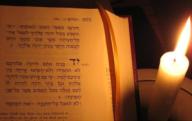I received a trio of books recently, so I’m providing some brief thoughts on what I’ve read so far.
 First, Evolution and the Fall is an anthology of essays edited by William Cavanaugh and James Smith. The latter was featured on the MI Podcast talking about secularism and his book How Not to Be Secular: Reading Charles Taylor. Of course, I had just submitted the final version of an article on the nature and translation of Adam in Genesis 2-3 from the 2013 Mormon Theology Seminar on Genesis 2-3. And of course, that meant there was great material in this book I wish I had seen earlier. The problem, as the evangelical editors state, is this. Continue reading
First, Evolution and the Fall is an anthology of essays edited by William Cavanaugh and James Smith. The latter was featured on the MI Podcast talking about secularism and his book How Not to Be Secular: Reading Charles Taylor. Of course, I had just submitted the final version of an article on the nature and translation of Adam in Genesis 2-3 from the 2013 Mormon Theology Seminar on Genesis 2-3. And of course, that meant there was great material in this book I wish I had seen earlier. The problem, as the evangelical editors state, is this. Continue reading




 The scriptural text gets fed into our black box, and out comes “what scripture says.” But since the content of those black boxes differs, so too does the end product of “what (we think) scripture says.”
The scriptural text gets fed into our black box, and out comes “what scripture says.” But since the content of those black boxes differs, so too does the end product of “what (we think) scripture says.” 



 People are multi-faceted and complex. It’s very easy to develop an attitude of putting either a halo or a black hat on someone from one incident, one aspect of them, particularly when it’s a historical figure. It can be hard to get a full picture of someone. Elder Maxwell once said that the tragedy of Elder McConkie was that he had the most fantastic sense of humor, and no one in the Church knew it. (See my
People are multi-faceted and complex. It’s very easy to develop an attitude of putting either a halo or a black hat on someone from one incident, one aspect of them, particularly when it’s a historical figure. It can be hard to get a full picture of someone. Elder Maxwell once said that the tragedy of Elder McConkie was that he had the most fantastic sense of humor, and no one in the Church knew it. (See my 
 Elder Eyring told a story in
Elder Eyring told a story in 
 Young Earth Creationism (YEC) is, ironically, relatively young. I’ve written about its origins at
Young Earth Creationism (YEC) is, ironically, relatively young. I’ve written about its origins at 
Recent Comments